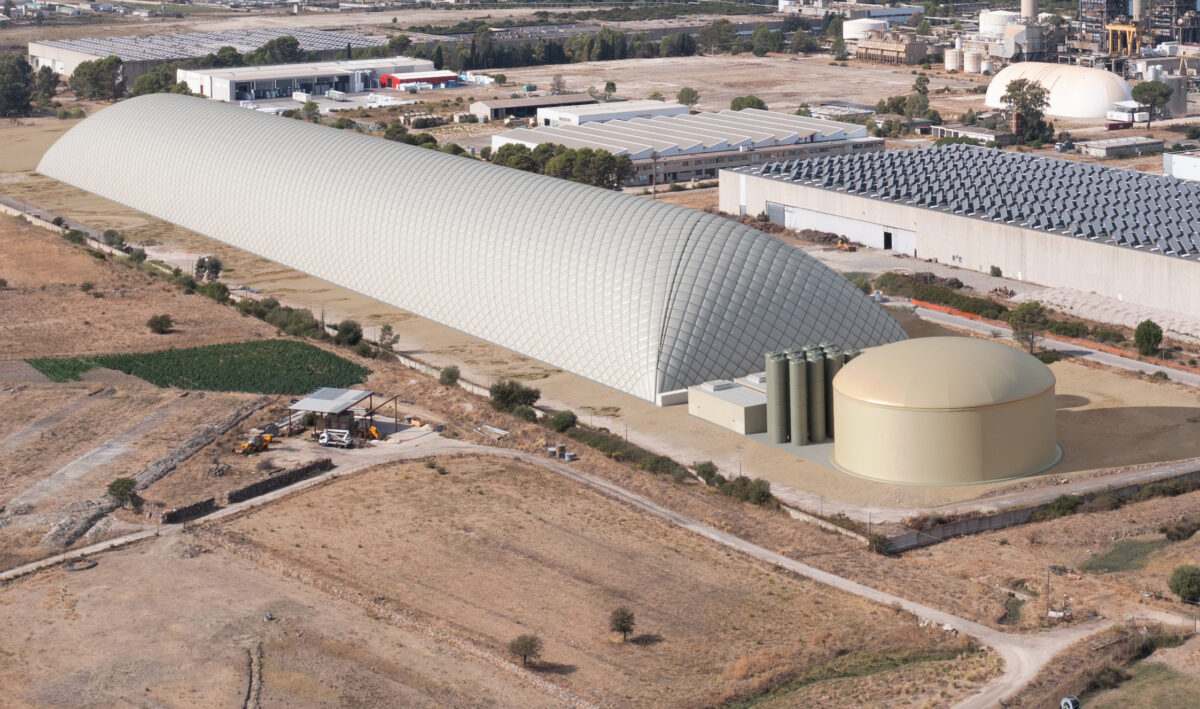 Energy Dome's CO2 Battery (Rendering) - Ottana, Sardinia, Italy (Photo: Energy Dome)
Energy Dome's CO2 Battery (Rendering) - Ottana, Sardinia, Italy (Photo: Energy Dome)At COP28, energy storage company Energy Dome announced funding commitments for its first CO2-based thermo-mechanical energy storage system to be located in Sardinia, Italy.
The project will use a standard frame 20MW/200MWh CO2 Battery, which can supply energy to the grid for 10 consecutive hours, the company said. It will be the first of a series of identical units using the same technology design, which Energy Dome says will unlock cost reductions and accelerate the bankability of future units of the modular, standardized CO2 Battery frames.
The CO2 Battery does not use materials from rare metals or lithium, and its main components are based on already existing and known supply chains, Energy Dome said. The battery works by manipulating CO2 between its gaseous and liquid phases. As the CO2 warms up, it evaporates, and expands, turning a turbine to generate electricity.
Energy Dome says no emissions are released into the atmosphere during this process, and costs are reduced by storing the CO2 at ambient temperature in its liquid phase. Additionally, the company claims its CO2 battery has a lifetime of 30+ years, compared to the 12 or less for a lithium-ion battery.
The Commercial Operation Date of the storage facility is expected to take place in the third quarter of 2024.
Funding will be in the form of a project-level grant commitment of up to €35,000,000 from Breakthrough Energy Catalyst and €25,000,000 venture debt financing commitment from the European Investment Bank, both subject to the satisfaction of funding conditions. The funds are being made available through the EU–Breakthrough Energy Catalyst partnership.
Breakthrough Energy Catalyst funds and invests in commercial projects for emerging climate technologies. By investing in these opportunities, Catalyst seeks to accelerate the adoption of these technologies worldwide and reduce their costs.
The European Investment Bank is expected to provide €25,000,000 of venture debt financing, backed by InvestEU, to the project. The EU aligns capital with Catalyst using funds available from Horizon Europe & Innovation Fund through the InvestEU Program with the European Investment Bank, as implementing partner of the European Commission.